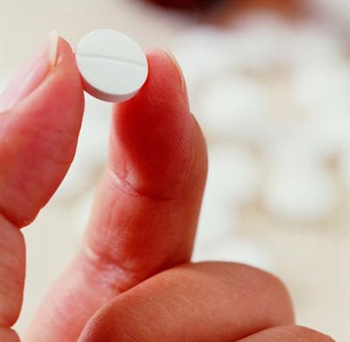据8月17日刊《美国医学会杂志》上的一则研究披露,作为某些对常规的痛风治疗不起反应患者的一种替代疗法,那些患有严重、慢性痛风的病人在服用药物pegloticase 6个月后,其尿酸值以及机体功能和生活品质都获得了较大的改善。对痛风病人进行长期的降低尿酸盐的治疗目的是为了将尿酸(UA)浓度维持在某一水平之下。然而,根据文章的背景资料,在美国的5-6百万痛风病人中,在其进行口服降低尿酸盐的治疗时的UA浓度常常超过所建议的目标尿酸范围。Pegloticase是一种最近批准的药物,它是为那些在服用常规降低尿酸盐制剂无效的病人研发的药物。该药物是通过静脉给药的,它会留在循环系统中降解尿酸。
北卡罗来纳州达勒姆杜克大学医学中心的John S. Sundy, M.D., Ph.D.及其同事报告了2则随机化有安慰剂对照的为期6个月的试验结果,这些顽固性痛风病人接受的是pegloticase治疗的,该试验旨在测试该药降低尿酸盐的临床功效和耐受性。这些试验(C0405 和 C0406)是在2006年6月至2007年10月间在美国、加拿大和墨西哥的56个风湿病治疗中心内开展的,病人为罹患严重痛风者,他们对别嘌呤醇(一种治疗痛风的药)无法耐受或是其痛风为顽固型;他们的血清尿酸浓度在8.0 mg/dL或以上。共有225名病人参加了试验:有109人参加了C0405试验,有116人参加了C0406试验。病人接受每两周一次的静脉内注射;他们分为每次注射8 mg 的pegloticase (每两周注射一次药物的治疗组),或为pegloticase与安慰剂接替注射(每月注射一次药物的治疗组),或是安慰剂组。初步检测的结果为治疗3个月时和6个月时血浆尿酸浓度低于6.0 mg/dL。
研究人员发现,当以剂量进行单独分析时,在这2个试验中,那些每两周接受一次pegloticase治疗的病人产生的(符合初步治疗结果的)反应率为47%(20/43)和38%(16/42)。那些接受每月一次pegloticase治疗的病人报告的反应率为20%(8/41)和 49%(21/43),而在两个安慰剂组中,反应率皆为0%。文章的作者写道:“当将2个试验中的数据集合在一起的时候,在每两周进行一次治疗的小组中,有36/85个病人中达到了最初的治疗终点(42%);在每月一次治疗的小组中,有29/84个病人达到了最初的治疗终点(35%);在安慰剂组中,0/43个病人达到了最初的治疗终点。”在对治疗起反应的人中,他们的血浆平均UA值在整个6个月的治疗期中显著地低于6.0 mg/dL。
研究人员还发现,与安慰剂组相比,2个pegloticase 剂量组的人都报告说,他们的身体机能和生活品质都有了显著的改善。每2周接受一次pegloticase治疗的病人所报告的疼痛感觉比安慰剂组的病人会有显著的减少。

JAMA:用于严重慢性痛风的药物与症状的改善有关
生物探索推荐英文论文摘要:
Efficacy and Tolerability of Pegloticase for the Treatment of Chronic Gout in Patients Refractory to Conventional Treatment
ABSTRACT
Context Patients with chronic disabling gout refractory to conventional urate-lowering therapy need timely treatment to control disease manifestations related to tissue urate crystal deposition. Pegloticase, monomethoxypoly(ethylene glycol)–conjugated mammalian recombinant uricase, was developed to fulfill this need.
Objective To assess the efficacy and tolerability of pegloticase in managing refractory chronic gout.
Design, Setting, and Patients Two replicate, randomized, double-blind, placebo-controlled trials (C0405 and C0406) were conducted between June 2006 and October 2007 at 56 rheumatology practices in the United States, Canada, and Mexico in patients with severe gout, allopurinol intolerance or refractoriness, and serum uric acid concentration of 8.0 mg/dL or greater. A total of 225 patients participated: 109 in trial C0405 and 116 in trial C0406.
Intervention Twelve biweekly intravenous infusions containing either pegloticase 8 mg at each infusion (biweekly treatment group), pegloticase alternating with placebo at successive infusions (monthly treatment group), or placebo (placebo group).
Main Outcome Measure Primary end point was plasma uric acid levels of less than 6.0 mg/dL in months 3 and 6.
Results In trial C0405 the primary end point was reached in 20 of 43 patients in the biweekly group (47%; 95% CI, 31%-62%), 8 of 41 patients in the monthly group (20%; 95% CI, 9%-35%), and in 0 patients treated with placebo (0/20; 95% CI, 0%-17%; P < .001 and <.04 for comparisons between biweekly and monthly groups vs placebo, respectively). Among patients treated with pegloticase in trial C0406, 16 of 42 in the biweekly group (38%; 95% CI, 24%-54%) and 21 of 43 in the monthly group (49%; 95% CI, 33%-65%) achieved the primary end point; no placebo-treated patients reached the primary end point (0/23; 95% CI, 0%-15%; P = .001 and < .001, respectively). When data in the 2 trials were pooled, the primary end point was achieved in 36 of 85 patients in the biweekly group (42%; 95% CI, 32%-54%), 29 of 84 patients in the monthly group (35%; 95% CI, 24%-46%), and 0 of 43 patients in the placebo group (0%; 95% CI, 0%-8%; P < .001 for each comparison). Seven deaths (4 in patients receiving pegloticase and 3 in the placebo group) occurred between randomization and closure of the study database (February 15, 2008).
Conclusion Among patients with chronic gout, elevated serum uric acid level, and allopurinol intolerance or refractoriness, the use of pegloticase 8 mg either every 2 weeks or every 4 weeks for 6 months resulted in lower uric acid levels compared with placebo.
Trial Registration clinicaltrials.gov Identifier: NCT00325195
KEYWORDS: allopurinol, cardiovascular diseases, drug reaction, adverse, gout, gout suppressants, polyethylene glycol-uricase, randomized controlled trial, uric acid.







